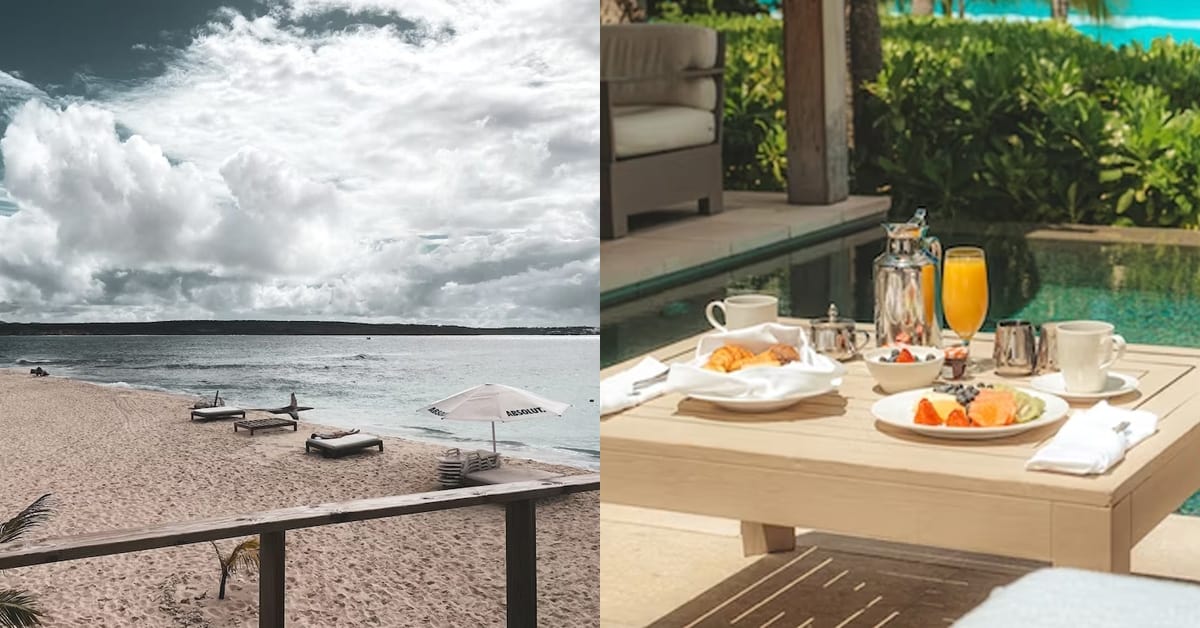Anguillan cuisine is a unique blend of African, European, and Caribbean influences, resulting in a rich and flavorful culinary experience. The island’s location in the Eastern Caribbean has allowed for a diverse range of ingredients to be incorporated into its dishes, including fresh seafood, tropical fruits, and spices.
From savory stews to sweet desserts, Anguillan food is a reflection of the island’s history and culture.
Anguillan cuisine halal or not?
Is Anguillan food halal?
Since Anguilla is a predominantly Christian country, it is unlikely that all the food items are halal.
It is recommended to check with the restaurant or food vendor about the halal status of the food before consuming it.
What kind of food do Anguillan eat?
Anguillan cuisine is a blend of African, European, and Caribbean influences. Some popular dishes include:
- Saltfish and Johnny Cake – a breakfast dish made with salted codfish and a fried bread called Johnny Cake.
- Conch fritters – deep-fried balls made with conch meat, flour, and spices.
- Peas and rice – a staple dish made with pigeon peas and rice, often served with meat or fish.
- Jerk chicken – a spicy grilled chicken dish marinated in a blend of spices and herbs.
- Fish soup – a hearty soup made with fish, vegetables, and spices.
- Lobster – a popular seafood dish often served grilled or in a stew.
- Goat water – a spicy stew made with goat meat, vegetables, and spices.
- Coconut tart – a sweet dessert made with coconut, sugar, and pastry.
- Black cake – a rich fruit cake made with rum, dried fruits, and spices.
- Sorrel drink – a refreshing drink made with hibiscus flowers, sugar, and spices.
How can you tell if the food is halal in Anguilla?
Here are some information on how to determine if the food is halal in Anguilla.
- Look for halal certification: Check if the restaurant or food product has a halal certification from a recognized halal certification body. This certification ensures that the food has been prepared according to Islamic dietary laws.
- Ask the restaurant staff: You can ask the restaurant staff if they serve halal food. They should be able to provide you with information on the ingredients used and how the food is prepared.
- Check the ingredients: If you are buying packaged food, check the ingredients list for any non-halal ingredients such as pork or alcohol.
- Look for Muslim-owned restaurants: Muslim-owned restaurants are more likely to serve halal food. You can ask the restaurant staff if they serve halal food or look for halal certification.
- Ask the local Muslim community: If there is a local Muslim community in Anguilla, you can ask them for recommendations on halal restaurants or food products.
Is it hard to find halal food in Anguilla?
According to my research, it may be challenging to find halal food in Anguilla as it is a small island with a limited Muslim population.
However, some restaurants may offer halal options upon request. It is recommended to contact the restaurant beforehand to inquire about their halal options.
Is Anguillan food healthy?
Anguillan food can be healthy if you choose the right dishes. The traditional cuisine of Anguilla is based on fresh seafood, vegetables, and fruits. Some popular dishes include grilled fish, seafood stews, and salads.
These dishes are generally low in fat and high in protein and fiber, making them a healthy choice.
However, some Anguillan dishes may be high in calories, fat, and sodium, such as fried fish and rice and peas. It’s important to choose wisely and balance your meals with healthy options.
What is Anguillan food similar to?
Anguillan food is similar to other Caribbean cuisines, with a focus on seafood, rice, beans, and spices such as jerk seasoning.
It also has influences from African, European, and indigenous cultures. Some dishes may be similar to Jamaican or Haitian cuisine.
Steps to find halal food in Anguilla
Here are some general steps that can be taken to find halal food in any location:
- Research online: Look for halal restaurants or food options in Anguilla through online search engines, social media, or food apps.
- Ask locals: Ask locals or Muslim communities in Anguilla for recommendations on halal food options.
- Check for halal certification: Look for halal certification logos or signs in restaurants or food stores. Halal certification ensures that the food is prepared according to Islamic dietary laws.
- Verify ingredients: If halal certification is not available, verify the ingredients used in the food. Avoid food items that contain non-halal ingredients such as pork, alcohol, or gelatin.
- Cook your own food: If halal food options are limited, consider cooking your own food using halal ingredients that are available in local stores.
- Be flexible: Be open to trying new cuisines or food options that are not traditionally halal but can be modified to meet halal requirements.

